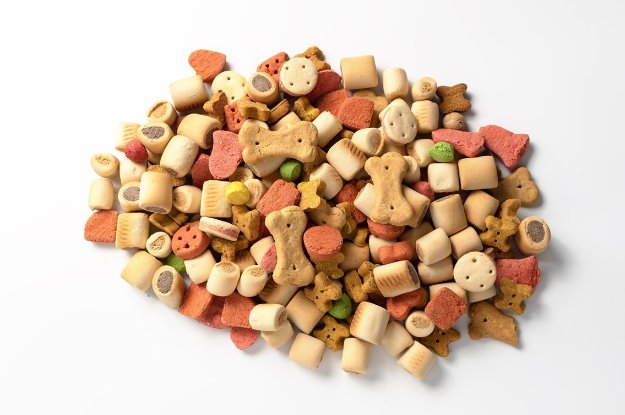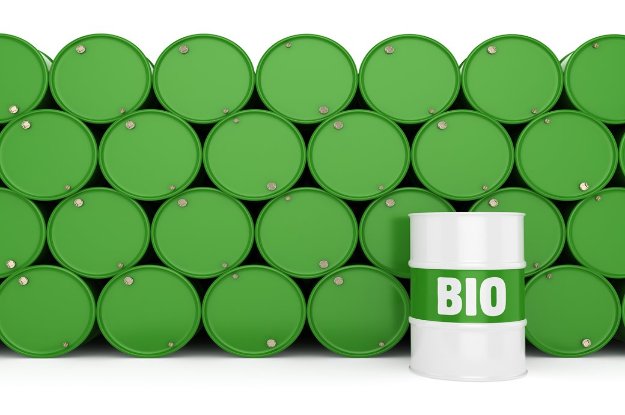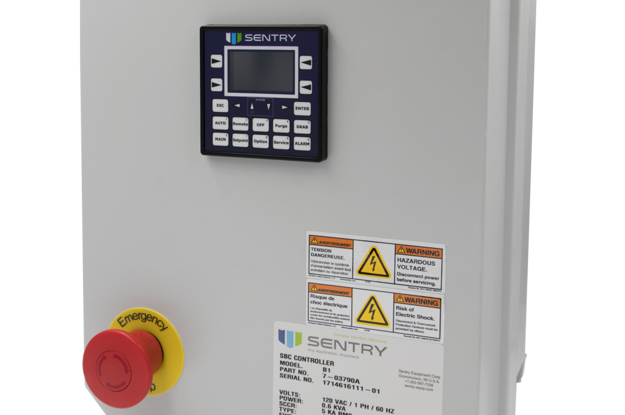Representative Sampling in the Packaging of Nut Butters

Simultaneously, food health and safety are co-packers top priorities to avoid recalls due to salmonella, e-coli, and other contaminants.Faced with these pressures, co-packers are looking for adaptable automatic sampling solutions. These solutions help them ensure that samples represent the entire lot or batch, keep up with continuous improvement projects, and maintain their Safety Quality Food (SQF) status.
Contamination Risks in Packaging Nut Butters
The co-packer is responsible for ensuring that each of their customers' recipes meets specific requirements. What's more, co-packers must ensure they're producing a consistent, high-quality product. However, this can be difficult, as process equipment is often prone to contamination:- From new process equipment
- Ingress from environmental sources or foreign material introduced to the equipment during maintenance
- Internal contamination from moving parts within equipment
- Cross-contamination is when one product comes into contact with another product during processing
Cross-contamination is particularly challenging because co-packers must ensure that flavors and product consistencies don't mix. Additionally, they need to ensure that organic products don't come into contact with non-organic ingredients. That's why co-packers usually produce organic products before non-organic products to reduce the risk of cross-contamination.
Current Sampling Protocols Are Insufficient
Most nut butter producers use a "grab-style" procedure. This is where an operator takes a jar off the production line or collects finished, unpackaged product in a container as it's being packaged into bulk containers before sending it for sampling analysis.However, grabbing a single jar from a pallet of 1,000 (or more) jars isn't an exact representation of that entire lot. Collecting a sample in a container is also risky. The operator takes a single snapshot of a large amount of product, which could fail to identify contamination in the lot or a deviation from the required recipe.
Automatic Sampling Delivers Quality and Consistency
Today's co-packers need a reliable method to produce representative and composite samples effectively by consistently collecting small amounts from a product stream on a timed basis. This approach contains a sample from every jar or package, ensuring a consistent, accurate, and representative sampling program.
Some nut butter co-packers have adopted the N-60 sampling method, considered the gold standard for obtaining a lot or batch representative sample. Some samplers help co-packers replicate this sampling method and produce 60 samples per lot or batch.
Other plants choose to follow the FDA's Bacterial Analytic Manual where microbiological analysis is needed. This document highlights the need for a clean, sanitary device to collect and package representative samples. However, it is often up to the manufacturer to prove how they are meeting these requirements.
To meet the requirements of N-60 or the Bacterial Analytic Manual, automatic samplers help co-packers:
- Meet sanitary standards
- Prevent introducing operator bias to the process
- Adapt to current methods based on size and connection style
- Prevent internally generated contamination with FDA-approved O-rings and sterile collection bags/jars
- Prevent microbial growth within the equipment
- Regularly clean and maintain equipment with an easy-to-disassemble and reassemble design
- Automate sampling to reduce interruption and free up personnel for other tasks
- Meet a variety of centipoise (cP) measurements to work with the natural variance of viscosity in nut butters
Contact us on our online contact form for more information.

Written by Sentry Equipment
With proven sampling expertise since 1924, Sentry products and services provide business operations the critical insights to optimize process control and product quality. We deliver true representative sampling and analysis techniques to customers around the globe, empowering them to accurately monitor and measure processes for improved production efficiency, output and safety. Standing behind our commitments, we are determined to tackle any application, anywhere.
Related Posts

Bulk Solid
Maximize Recipe Control with Automatic Sampling
A repeatable, representative sampling of bulk-solid products is essential in today’s production environments. From food production to plastics, automatic samplers are becoming standard practice to provide the needed insights on product quality and safety for profitable production.
Read More
Bulk Solid
Why is Hydrocarbon Sampling Important?
Renewable hydrocarbon biofuels are fuels produced from biomass sources, including vegetable oils, animal fats, and specialized crops. They are chemically identical to standard petroleum-based products and can be used in existing engines and infrastructure. However, like petroleum-based products, biofuels require strict testing.
Read More
Bulk Solid
How to Maintain Recipe Control with the Sentry SBC Controller
Production of bulk solid materials is dependent on expensive capital equipment, often optimized to produce multiple products on the same line.
Read MoreDesigned with You in Mind
Shop our complete line of ISOLOKs to find the right fit for your sampling application.